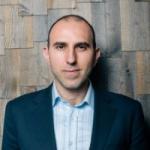
Hyperloop Law: Autonomy, Infrastructure, and Transportation Startups
featuring General Counsel of Hyperloop One, Marvin Ammori
This event is co-sponsored by Harvard Journal of Law & Technology and the Berkman Klein Center for Internet & Society at Harvard University.
In 2013, Elon Musk proposed an "open source transportation concept" of levitating vehicles zooming passengers through vacuum tubes at 760 miles an hour. It would be weatherproof, energy-efficient, relatively inexpensive, have autonomous controls.Its impact on urban and inter-city transport could reshape economies and families.
Since Musk's proposal, a company in Los Angeles, Hyperloop One, has secured 160 million in financing, hired 220 employees, and began engineering and testing to make the hyperloop concept a reality. But engineers aren't the company's only inventors. A hyperloop transport system is so different from an airplane, train, or bus that a new legal regime is necessary. Lawyers and government officials in the US, Dubai, and elsewhere have been working on creating a new framework that could govern the deployment of hyperloop systems.
Hyperloop One General Counsel Marvin Ammori will discuss the challenges and opportunities for crafting this new legal framework.
About Marvin
As General Counsel of Hyperloop One, Marvin lead the legal team and served on the senior business leadership. Hyperloop One is working to make ultra-highspeed ground transportation a reality. The legal and business issues they deal with include infrastructure finance, procurement, regulatory, transactions, and everything else. Their team includes five lawyers.
Before joining Hyperloop One, Marvin spent over a decade representing top technology giants and startups concerning their most important legal issues. He led the pro-net neutrality coalitions. He advised Google in its antitrust investigation, Apple in its disagreement with the FBI over iPhone encryption, and many in the tech community to kill SOPA. From 2011 to 2015, he did this as the head of his own firm representing companies including Google, Apple, Dropbox, and SoftBank, and startups like OpenDNS and Layer. Before that, he represented advocacy groups, including leading the Comcast-BitTorrent case as general counsel of Free Press, which is among the most important litigations concerning Internet policy in the past two decades. In 2014-2015, he led the fight to Title II for net neutrality, organizing hundreds of companies and nonprofits, and helped secure a victory on appeal against administrative and first-impression constitutional challenges.
Marvin has been named among Politico's 50 visionaries for 2015, Fast Company's 100 Most Creative in Business in 2012, a Washingtonian Magazine "Tech Titan" in 2015, and has also been profiled on the front page of the Wall Street Journal, the Washington Post, and the Philadelphia Inquirer. He has published in the Harvard Law Review, Foreign Affairs, and the New York Times, and appeared as an expert on MSNBC, CNN, and Fox, and testified before several government agencies around the world.
A former law professor, Marvin has written on First Amendment theory. His article "First Amendment Architecture" sets out my primary arguments. He graduated from Harvard Law School in 2003, cum laude.
Download original audio or video from this event.
Subscribe to the Berkman Klein events series podcast.
You might also like
- communityChatNYT
